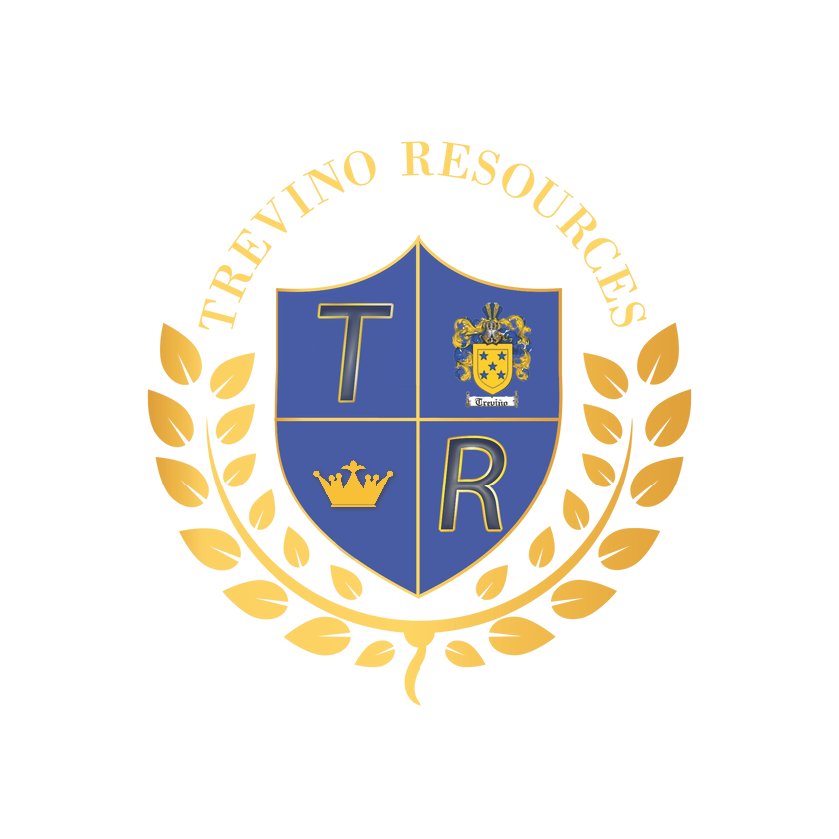Agriculture and energy are closely linked together, and in our current political environment it really becomes evident as they are attacking both industries for methane and greenhouse gas emissions. Not only are the markets tightly aligned so are the cultural and social standards. Our great farmers use massive amounts of energy to feed our country, and they rely on low-cost abundant energy. Including diesel, fertilizer and electricity in huge quantities. And not often thought of, the fertilizers require natural gas to be manufactured.
My guest today is Sara Falen Tate, Owner of Wild West Advocacy, and Cowgirl Magazine 30 under 30 award winer. We had an absolute blast talking about the methane regulations, workers, and the markets. She is a great resource for the agricultural community advocacy fighting for American’s rights and helping farmers against the regulatory onslaught.
I have often talked with other oil and gas rig hands that we are modern-day cowboys, and I agree. When you go to lunch in west Texas, at any diner, close your eyes, and you can hear great conversations from Ranchers, or oil and gas rig hands. It is all about God, family and country.
Thank you Sara for stopping by the Crude Truth, I had an absolute blast – Rey.
Follow Sarah Falen Tate on LinkedIn
https://www.linkedin.com/in/sarah-falen-j-d-576a86120/
Highlights of the Podcast
02:58 – A little bit background of Sarah
04:46 – Federal laws and it’s some extent state laws impact agriculture and natural resources
06:54 – One of the people that we give a hard time all the time
08:31 – The first thing ranchers will tell you
09:49 – Important part of environmental health
11:32 – The Securities and Exchange Commission
15:29 – Stand on issues
18:32 – What is production Agriculture?
21:33 – Small towns where the majority of workers are farmers or ranchers
23:07 – The reason that they work so hard to control rural America versus cities
26:39 – Legal issues and how they impact agriculture.
27:42 – Lot of states require branding
29:34 – The rate at which we are losing agricultural land
32:06 – One of the biggest concerns
Please reach out to Sarah Falen Tate on LinkedIn
Check out StatusJet HERE
THE CRUDE TRUTH Ep. 84 Sarah Falen Tate, Owner of Wild West Advocacy, LLC.
Video Transcription edited for grammar. We disavow any errors unless they make us look better or smarter.
Rey Treviño [00:00:00] Who would have ever thought. Food is controversial in 2024. We talk about that it much more on this episode of The Crude Truth.
Narrator [00:00:09] In 1901 at Spindletop Hill near Beaumont. The future of Texas changed dramatically. As, like a fountain of fortune, thousands of barrels of oil burst from the earth towards the sky. Soon, Detroit would be cranking out Model TS by the millions and America was on the move. Thanks to the black gold being produced in Texas now, more than a century later, the vehicles are different, but nothing else has truly changed. Sure, there may be many other alternative energy sources like wind and solar and electric. But let’s be honest. America depends on oil and entrepreneurs. And if the USA is truly going to be independent, it has to know the crude truth.
Narrator [00:00:52] This episode is brought to you by LFS chemistry. We are committed to being good stewards of the environment. We are providing the tools so you can be too. Nape Expo where deals happen. Air compressor solutions. When everything is on the line, Air Compressor Solutions is the dependable choice to keep commercial business powered up. Sandstone Group. Exec Crue, elevate your network. Elevate your knowledge. Texas Star Alliance. Pecos country operating, fueling our future.
Rey Treviño [00:01:27] Well, hello again and thank you, as always, for tuning in to another episode of The Crude Truth. Today, as we continue into this wonderful year, 2024, we talk about something that really who would have ever thought is controversial and that is food. Now we do dive into more, but when I say that, what does that really mean? Why and how is food controversial? Well, today, to answer that question and also explain it, I brought on somebody that is just literally, literally and I’ve said this on this show before literally blazing a trail. Literally. She is just fighting for the farmers, for the ranchers of America, and for every single person that watches this to eat. I brought on somebody that is not only an advocate or a lobbyist, but also is just sharing her thoughts and ideas with the young minds of today as a professor. And also she is 2020 fourth Cowgirl Magazine’s 30 under 30. My guest today is Sarah Facilitate. Sarah, how are you?
Sarah Falen Tate [00:02:33] I’m great. Thank you so much for having me today.
Rey Treviño [00:02:36] Oh well, thank you. And thank you so much for coming in. And welcome to the studio. And just welcome to Dallas for everybody out there. That is like who, Sarah? Because first of all, I, I think it’s really maybe for just my, my followers because you have such a huge following going on. But you know, for everybody out there who is Sarah?
Sarah Falen Tate [00:02:57] Well, I will tell you a little bit about my background. I am a sixth generation Wyoming ranch kid. I live north of Cheyenne, Wyoming. My family has a cow calf operation that, my husband and I also still work on. My family has been in Wyoming for six generations, but also on my dad’s side of the family. He also has multiple generations of ranching. And that is really where we get our roots from. And you hear sayings like, you know, tough cowboys pull it up by the bootstraps. And that’s really how I grew up and how my family has always lived our lives.
Rey Treviño [00:03:38] Well, thank you so much for for even coming to the studio. And welcome to Dallas. You know, being here in Texas, we like to think that we have the Cowboys in, in our pre-production meeting. There’s really not that much difference other than the weather’s a little bit colder up there.
Sarah Falen Tate [00:03:52] Oh, yes, very much so.
Rey Treviño [00:03:56] And, you know, I want to highlight, though, why you’re in town. And if you don’t mind, I did kind of mention there in your introduction. Why are you here in town?
Sarah Falen Tate [00:04:05] I’m here for cowgirl Magazine’s 30 under 30. It’s an award that cowgirl magazine hands out to 30 women under the age of 30 who are making a difference and trying to impact and better Western industries.
Rey Treviño [00:04:21] That is just so awesome that that that you ever won. You definitely deserve that award for all that you’ve been doing. But I mean, that’s that’s a national, national recognition. And, you know, Cowgirl Magazine is no joke. So, I mean, what you’re up to and like I said in my my cheesy trailer, it’s like you’re blazing a trail right now. So, I mean, what what the heck is going on?
Sarah Falen Tate [00:04:43] Well, I started off really being interested in how federal laws, and it’s some to some extent state laws impact agriculture and natural resources because growing up in a ranching background, you see all the time the battles that farmers and ranchers have to fight just to be able to work, to put food on the table for consumers across the United States and across the rest of the world. So seeing all of those problems firsthand and then wanting to be able to do something about it, and that’s what took me to the University of Wyoming for undergraduate school. I got degrees in agriculture, communication and environment, natural resources. And then I decided to take it a step further and go to law school.
Rey Treviño [00:05:26] Yeah, yeah. And and with your law law school background, you have actually been fighting at a federal level for some of these things, correct?
Sarah Falen Tate [00:05:36] That’s correct. I’ve taken groups of farmers back to Washington, D.C., to actually talk to our representatives and our senators about some of the issues that we’re having. I think that one of the problems that we have is we have a lot of really great lobbyists and a lot of really great people out in Washington, D.C., trying to educate senators and representatives about our issues. But I think that there’s a different aspect that comes in a different perspective when you have farmers and ranchers themselves come out and say, hey, this is how this law is shutting me down. This is how I am going out of business. And, you know, representative, this is what you can do to keep your constituents in business, feeding the rest of the nation.
Rey Treviño [00:06:23] You know, and in my teaser, I got to say, I did take it from you is that, you know, who would have ever thought that our food would be so controversial? I mean, you know, as you know, you know, I’m in the oil and gas industry, and they try to, you know, they they talk about methane with us all the time. That’s something that you guys are getting methane. I mean, they’re telling you that we have too many cows and they’re doing too much methane. I mean, what do you see to things like that when people when you hear those kind of things?
Sarah Falen Tate [00:06:52] Well, I saw something kind of funny recently. And, you know, one of the people that we give a hard time all the time is, is Bill gates. He’s a guy who’s constantly talking about how methane and how we need to reduce the number of cattle in the United States and in the world. And we should be eating like insect based protein and things like that. And and so I saw a thing that said, you know, Bill gates can lock himself in a garage with a car and I’ll lock myself in the garage with a cow, and then we’ll discuss the details in the morning. And I think that there’s a lot of truth to that, because I tell you what, you know, it’s it seems like there’s always people in big cities, you know, smog filled cities who are saying that we, the ranchers, who our whole business is premised on taking care of the environment, if we destroy our environment, we go out of business. And so we wouldn’t be doing things that are bad for the environment because it quite literally puts us out of business. And so it’s so funny to me that someone from a big city. We’ll turn around and say that we’re the ones causing problems in the environment.
Rey Treviño [00:07:56] It is something that I find very and again, that’s why I think the only gas industry in farming and ranching gets along so much because it’s like we’re there, we do a job, then we make it look as if we weren’t there, minus a palm Jag going on. You guys, you know, and again, correct me if I’m wrong because I’m not a professional farmer or a rancher, but y’all, like, move around so that the ground can like re cultivate maybe is a correct word. So it’s like y’all are making sure that the weather or is not the weather. The grass and the soil is all getting replenished with vitamins, nutrients. Is that correct?
Sarah Falen Tate [00:08:30] ABS. Absolutely. You know, the first thing ranchers will tell you is if you graze pasture down too far, the grass won’t grow back and then you don’t have the pasture for next year. And so it’s really important that as, we raise cattle, we do move them to different pastures. Then the manure from the cattle helps fertilize the ground. And also, as they are grazing, it actually helps the grass absorb more carbon from the atmosphere. And that carbon gets stored in the roots of the grasslands, and actually helps sequester carbon.
Rey Treviño [00:09:01] Wow. I actually didn’t know that last part at all. I mean, and so it’s like you guys are literally making greener pastures, not only for the cattle to eat, but also for us to breathe clean, clean. And, you know, I see those, memes all the time where it’s like you got somebody from a big city and they take a beautiful green pasture than they put, you know, solar panels and some windmills on and go, oh, much better. And it’s like, no, it’s not, is it?
Sarah Falen Tate [00:09:27] It’s it’s really not. And, you know, when you think about it, something like, you know, solar panels, they take up so much surface area and a pasture keeps the sunlight from hitting the grass, which actually damages the soil. Should the solar panels be removed, it’s actually going to take a lot longer for that pasture to be able to come back, because sunlight is a really important part of environmental health.
Rey Treviño [00:09:51] Really. They’ll they’ll hurt the ground down below.
Sarah Falen Tate [00:09:54] Yeah. When it’s not having the sun. And you think about when rain falls slides off, it’s hitting the ground differently. It’s just not as good for pasture land as letting it have access to the sun and to the rain, and to how things are naturally.
Rey Treviño [00:10:09] Really doing it. I ask you that because you see, our least, you know, you see pictures of like, goats or the small animals, the shorter than cows eating and grazing underneath, solar panels all the time, like, oh, look, we can do both. And I’m like, can you really? And it’s not like you really can’t sustain that for a long term.
Sarah Falen Tate [00:10:29] I would think not. I’m not an expert in that. I won’t pretend to be an expert, you know. And I think for smaller animals, you know, goats and sheep, you know, that could be a good way to utilize, pastures in more than one way. But the problem is, is there’s not a huge market for goat meat or sheep meat, you know, are, you know, people prefer the premium products, which as a rancher, I will always say is beef. Yeah. And it’s hard to have cattle. In an area like that. And and not to mention animals can be very destructive. So I imagine that there then comes to be a lot more maintenance and, cleanup around those panel.
Rey Treviño [00:11:11] I could only imagine. But speaking of clean up, I want to talk because you’ve been to Washington, DC. And what was it that really just got you going? It was a it was a video that went viral that you just did. Can we talk about that?
Sarah Falen Tate [00:11:24] Absolutely. I’ve done a few videos that have hit pretty hard. Most recently, the SEC, the Securities and Exchange Commission came out with a regulation that was going to allow individuals and government entities, including foreign governments, to either lease or control federal lands, to be put in a natural asset company, which means that those lands that are put in a natural asset company cannot be used for hardly anything. They can be used for renewable energy. They can be used for, regenerative agriculture, but can’t be used for anything else. And then those assets can be traded on the New York Stock Exchange. And wow. So it was going to allow foreign governments to control her natural resources.
Rey Treviño [00:12:17] And weren’t there some like big groups that were behind trying to get that to, get passed, if I’m correct. And you didn’t didn’t. Also, I find that so interesting that you mentioned how they get those credits because of the only gas industry right now. They have these things called carbon credits, and that almost sounds like it’s the same thing. It’s a in a way, it’s like, oh, hey, we’re not growing something on this. So we’ll give you credit for it. Holy cow.
Sarah Falen Tate [00:12:43] It’s honestly, it was going to work really, really similarly to a carbon credit program, which, you know, quite frankly, in my opinion, the way carbon credits work is that if you have a big company and they’ve got a lot of money, they say, well, we’re giving money to someone else so we can do whatever we want to the environment.
Rey Treviño [00:13:02] Yes.
Sarah Falen Tate [00:13:03] It doesn’t. It’s not really an offset. You’re just paying for your own environmental damage.
Rey Treviño [00:13:08] Exactly. I mean, you you I couldn’t have said it better myself, but it’s like so basically, like when you’re net zero, it doesn’t mean you’re actually changing any. Like, if you had smog coming out of your smokestacks at your factory, you’re not stopping that. You’re just buying these cheesy credits over here that keep this area still clean and clear, you know, and so I know, but also, you are a professor. I mean, first of all, I can’t believe that. And in today’s world, I want to throw this at you, because in in my teaser and introducing you, you are. Sharing with Gen Z in class. Okay. I am definitely the one before that, you know. Definitely older than that. And I’m working on my master’s degree right now. And I, as an older person, see this indoctrination that is going on at the college level. So I think and I hope that’s okay to say, because I know we didn’t talk about this. I think what you’re doing by just allowing people to have an open mind and you’re not forcing anything, is just awesome. And they’re only continuing to add more classes to you for next semester, and that’s just awesome.
Sarah Falen Tate [00:14:16] That’s been teaching has been such a fun experience for me, and I actually really struggled at first because when I was in college, I had my fair share of obviously very biased professors, and I felt like I was punished for having different opinions. And so I really wanted to make sure that I didn’t have any students that felt that way. You know, should they have differing opinions than my own? And when you teach about law and policy, naturally there’s just a lot of opinions involved in it. And at first I was trying to figure out how I could keep my opinions completely to myself and then thinking about it, it would take a very quick Google search for any of my students to know exactly where I stood on any issue, because of the nature of the other jobs that I have, which require me to put my opinions on the internet for everybody to see.
Rey Treviño [00:15:05] And that’s that’s not to cut your jump in. But, I mean, that was what made you you had a one, you know, one viral statement that you just made on your phone one day. And that thing it took, you said it to where you are right now. So yes, I think it’s so cool that they so, so keep going. I’m so sorry. I didn’t mean to cut you off.
Sarah Falen Tate [00:15:23] That’s okay. Yeah. And so what I ended up deciding to do is I was going to be very upfront with them about where I stand on issues. But when I’m talking about an issue, especially one that I have very strong opinions on, which quite frankly, is most issues, I give both sides of the issue and then I give the students, and it’s a very discussion based class. I ask my students what they think. Now here’s what the law says. How do you think it should be enforced? How do you think it applies to your own agriculture operation? A lot of my students, want to go back into production agriculture. And so how does this apply to agriculture? How does this apply specifically to your operation? And then at the end I say this is what I think about it. Okay. I also do activities where I will hand out a case and I’ll make them all read the case and divide them up in half completely randomly and say, you argue for this side, you argue for this side. And, there’s always students who have to argue in favor of something they don’t believe. But I think it’s so important to be able to think about opposing arguments and actually be able to articulate and anticipate what they’re going to say. And that really only helps your own personal arguments. Yeah.
Rey Treviño [00:16:37] If you’re not a lawyer, I don’t know. I mean, I if people didn’t know you were a lawyer, they definitely know now. And I love how you’re making people think outside the box. Or at least look at the other side. You’re, you know, you’re you’re almost like, sneaky sneaking in a way for them to make them look at the other side, like, say, you’re going to be on this side over here. Go figure it out. And, do you just give me A’s like I have one professor? Like I’ll give the name for this. I kid you not. Right. Well, then why? Why?
Sarah Falen Tate [00:17:03] No, no, no, I definitely I don’t just hand out a is, I actually, this is only my second semester teaching. Last semester, I have my students write a legal research paper. They have to make one agriculture issue, and they have to argue in favor or against something, and they have to make several arguments, and then they have to anticipate at least one opposing argument. And and for undergrad students, it’s a pretty intense paper.
Rey Treviño [00:17:33] I was about to say they should first hear a case study on their own. As soon as I’m getting my master’s, I’m like, oh yeah, that sounds like something I have to do now with certain things.
Sarah Falen Tate [00:17:41] Yeah, it’s very intense. And, I really wanted to encourage students to work at it and understanding that it’s a tough, tough paper. And I grade things pretty hard because I think writing skills are very important. I told them that for their rough draft. The grade is going to be really low. I said I am not expecting anybody to get a very good grade on this. But if you really work at it for your final paper, I will, you know, I will make your rough draft grade match, whatever it is you got on your final. And I think they were all very grateful because I think the average grade on the rough draft was like a 60% 000. But then they all they worked at it really hard, and I my office is always open. Come in. I’ll help you wherever you need it. But, you know, I want you to do it, and I want you to learn. And I want to make sure that you can do this.
Rey Treviño [00:18:30] That’s right. Awesome. Well, speaking of learning, what is production? Agriculture. I don’t know, what is that?
Sarah Falen Tate [00:18:36] So it is growing crops or raising animals. It’s, people who raise food for everyone else.
Rey Treviño [00:18:46] Oh, I feel like. Yeah. Okay. Oh, well, you know, and we talked about raising food and and how, you know, these people out there, like, like, you know, I guess we use the name Bill gates. He’s not a of the show or anything like that, but they’re, they’re literally out there trying to tell you guys again. And we already touched on it, how it is that you guys are doing bad things to to the nature, to the world. And I just again, find that so, so horrible that they’re doing that. But also speaking of horrible, you know, here in Texas, we just had some fires up in the Panhandle. And I mean, what is that going to, you know, how do you think that will affect I’ll throw I’ll throw a curveball at you. How do you think that will affect the beef market? Like, you know, do you have any insight on that?
Sarah Falen Tate [00:19:29] Well, so the beef market is really interesting because farmers and ranchers, we are price takers, not price makers. And so when food and, when the price of food changes, you know, that is mostly due to, packing. It’s due to grocery stores. Farmers and ranchers don’t get to create the prices. And so just because we have less product doesn’t necessarily mean that now you have to pay more to us specifically, you may have to pay more because of, you know, packers, or because the, the grocery store is charging more because they have less of the product. But. Very rarely does that actually change as far as what we get in our pockets.
Rey Treviño [00:20:14] Wow. I did not know that at all. That’s that’s crazy. That’s that’s very different. And I know that you shared that you guys had a little fire incident up in your neck of the woods here recently. That’s correct.
Sarah Falen Tate [00:20:27] We we did, northwest of Cheyenne, where we ranch. We have some ground that’s just kind of straight west of Cheyenne, and then some ground that’s north of Cheyenne. And, there was a fire. And, you know, thankfully for us, the wind changed. And so it kind of just missed us. But we drove up there and side by side, and we were watching the fire just with some fence cutters. And, you know, seeing it, the wind changed again. Are we going to have to go run our cattle out or. It burnt up, I think tens of thousands of acres, you know, not anything like what has been happening in the Panhandle. But, any time you have a fire that’s burning down houses or, burning pasture land, it’s always devastating to the whole community.
Rey Treviño [00:21:11] Yes. And let’s talk about that, because let’s talk about how you’re ranching, how ranching affects an entire community can which are like, I totally get another something I didn’t even want to because it affects everything that y’all do. And especially in and I’m just going to say small town America. I mean, is that correct?
Sarah Falen Tate [00:21:30] Oh, it does, especially when you get into really small towns where the majority of workers are farmers or ranchers. When we have regulations or we have, you know, laws that are shutting people down or bad weather, hailstorms that are damaging crops, you know, that is going to damage how much the farmer gets because they don’t have anything to sell, even though they don’t get to control the price of what it is they’re selling. They don’t have anything to sell. And so then that turns around. They can’t give money to schools. They can’t give money to local fire departments, go shopping at the local stores. It is a huge chain reaction.
Rey Treviño [00:22:13] You know, anything I wanted to ask are because it’s the same thing in the only gas industry. You go out to small town America, and you see oil pump wells at oil wells out there, and you got somebody that comes in and starts reworking those wells, are drilling new wells. Next thing you know, the little local cafes, busy again, the gas stations busy again, the little supply shop is busy again. And it’s like I feel like they are really. And I’m going to say this is it’s almost like they’re really focusing on rural America and trying to make it more and more harder for rural America than they are, you know, the big cities in life. And there really and we have people that have never even stepped foot on a ranch, almost making decisions for you, for you guys out there. And that’s why I think you and what you’re doing with your Wild West advocacy, it’s so important.
Sarah Falen Tate [00:23:02] That is, everything you just said is completely accurate. I think that the reason that they work so hard to control rural America versus cities is you have less people, easier to make regulations, easier to enforce regulations on a smaller amount of people, than on large amounts of people. So just practically, I think that’s where that sits. But I think the biggest issue is we have such a lack of education in agricultural issues. You know, people like to talk about the word privilege and privilege in the United States. Is it being so easy for you to get food that you don’t even have to know where it comes from? Yeah, and most people don’t. They just go to the grocery store and they buy their vegetables and they buy their packages of meat and and have no idea and no consideration about all of the things that had to happen to get those products to the grocery store shelves. And so I really think that that is a huge blessing and a huge privilege to live in the United States of America, where you don’t even have to worry about where your food comes from.
Rey Treviño [00:24:08] Wow. You know, you’re absolutely right. I mean, how many kids think that the energy comes from the electrical outlet? And I mean, it’s like we are so probably I think just in America alone, we’re like above 75% of the rest of the world, like every American in some form of gas, because we all do have access all the time to running water, to go to the store to at least buy something. And, and I think there’s just so much being lost in the fact that we have actually men and women out there that are raising these cow, these packages of meat that you get, the hamburger from McDonald’s that you get got people growing the wheat. At least we hope it is in McDonald’s. Right? You know, but growing the wheat for the bonds and and doing all that. But no, nobody knows about that anymore. And nobody’s talking to me about it. I think I’ve got a two year old and I, I got and I’ve been watching the old movie. And maybe if anybody out there called McClintock, it’s an old movie. And, it’s actually a little political.
Sarah Falen Tate [00:25:09] John Wayne. Right?
Rey Treviño [00:25:09] Yes. Yes, ma’am. John Wayne. And, he loves it right now because there’s cows and there’s horses. I think that’s it. But it’s like you watch the scene and he goes $0.15 all the way to Kansas City or something like that. Talk about a pal on hump. And they’re just so excited. And he goes, that’s money in the bank Boston. And we think about that. The only gas industries like those are the taxpayers money in the banks. But we don’t do that anymore. And I’m not trying to say, you know, I think I don’t want to compare somebody like, you know, I wasn’t did want to bring that. We’re not gonna bring up the show. But, you know, Kevin Costner and John Wayne, there’s a big different breed, those people. It’s where the people out there and the Western is gone. It’s like I so buy beef from a friend of mine. He has about 100 acres. Night and day difference between what I buy at the store and when I get from him. The quality of meat is so much better when you buy it actually, from, from a from a rancher right there to where? Because I feel like America also doesn’t get the privilege to taste what you guys really have grown. What you know, even, you know, an a cow. So I just want to kind of, you know, get off and random there because, you know, people don’t understand the old days, and because we don’t share it anymore. And we’re forgetting. There it is. We’re forgetting history of the world and how it is that things are truly made or built. They want to see how the sausage is made anymore.
Sarah Falen Tate [00:26:30] That is 100% accurate. And that’s part of the reason why I started sharing on social media. As I spend, I talk about a lot of legal issues and how they impact agriculture. You know, and I you know, that’s what I decided to do with my law degree instead of be a practicing attorney is, you know, share about these issues. But I also share what we do on our ranch. And, you know, we have calves in the spring, and you have to go and give them, you know, vaccinations keep them from getting sick. You have to, give them ear tags so we can identify them. And I put those things on the internet, and sometimes I get some really adverse comments and perspectives because people don’t understand why it is that we’re doing that. And, and we do everything on the ranch for a reason. We’re not we’re not just, you know, punching holes in the calves ears just because it’s fun. You know, we try to explain that, you know, I’ve got a five ear piercings. And it’s exactly the same thing that we do the calves. And I’m pretty sure I survived all five of mine. So I think the calf is going to survive just one in his ear.
Rey Treviño [00:27:33] Well, and I mean, you come on to me and they talk about that. It’s like we’re not branding him anymore most of the time. So it’s like, yeah, that’s more humane anyway.
Sarah Falen Tate [00:27:40] Well, we actually still a lot of states require branding.
Rey Treviño [00:27:44] So I, I’m throwing so many things that I did not know that. Okay. Really?
Sarah Falen Tate [00:27:49] Yeah. In a lot of states, branding is required. One of the one of those states is Wyoming. So we brand all of our cattle. And you actually have to get a brand inspection before you put those cattle on a truck. To send them somewhere else, or to send them to the packing plant or to the auction or whatever.
Rey Treviño [00:28:06] I did not know that.
Sarah Falen Tate [00:28:08] You do have to do that. And and, you know, one of the things is people think that branding is so cruel, but you think about what are welding gloves made out of? Cowhide. And that is the toughest material that we use for handling hot metal. You know, sure, the Cavs ball for a second, but it’s really not that bad for them. They have such thick hides that, you know, if that was something that was actually damaging to their health, we wouldn’t do it.
Rey Treviño [00:28:37] Oh my gosh. Well, I just I feel like I got an education today, and I do want to say this, and I’m glad that you are teaching because, in telling your story to people, because, we need more people fighting for us in Washington, D.C.. And by us, I mean us Americans that that understand the old that, that things don’t come just out of the sky. And, you know, so you have groups of people that are out there in Washington, DC fighting. And I’m glad you’re doing that, because you understand it. You live it every day because the people in Washington, DC, they don’t understand it anymore. They they are they they are out of touch. Truly, I think, a lot of, you know, not all of them are not all of them, but a lot of them really just don’t understand what we do in middle America anymore. And the bad part is, middle America only continues to get smaller.
Sarah Falen Tate [00:29:33] That is true. The rate at which we are losing agricultural land is astounding. And I don’t want to try to repeat the statistic because I’m sure that I’ll get it wrong. But every time I see the statistic, how many acres of land are lost every year? I am just too shocked. And the problem is that people think, oh good, this land is going into, you know, preservation that’s going to be healthier for it. It’s like, well, folks, you still got to get your food from somewhere, you know, and it might as well be from this country where we can benefit our own economy. And also we have really high standards on animal welfare, on health and safety. You want your food to come from here. You don’t want it to come from somewhere else.
Rey Treviño [00:30:11] That is so true. I mean, because of the standards, man. There’s so many core, similarities. Just like, between ranch and the only gas. And I get why there’s so many people that do both, and I just. You’re absolutely right. I didn’t even think about how from, you know, we need to buy American meat, you know, grown here in America. I mean, that’s that’s not terrible. That we have to say that.
Sarah Falen Tate [00:30:33] It’s completely crazy to me that people think that. Oh, well, you know, this this land is, you know, going back into nature as if cattle aren’t part of nature anyway. But, you know, going back into nature and then they like, I’m going to go buy a package of ground beef. Well, it’s from Brazil, you know, that’s it. And that’s the reality of it. And, I wish that more people understood that. Folks, you got to eat. That part is not going away any time soon. And I don’t care how many buildings in New York City have rooftop gardens, you will not be able to take care of the United States like American agriculture today can.
Rey Treviño [00:31:13] And that’s the Crude Truth right there. Sarah. How can people fight with with you, you know, and get behind what you are up to and everything else that you’re doing? How can people get in contact with you?
Sarah Falen Tate [00:31:25] I am on, Facebook, Instagram, TikTok is my biggest platform. LinkedIn. How we became connected. Yes. My all of my handles are Sarah Falen. The various. Ways of Sarah Falen. But it’s all my name and I can be found that way. I can also be found in the directory at the University of Wyoming.
Rey Treviño [00:31:48] And all I want to leave when I ask one more question, are there any things going on in Washington that concern you right now that are affecting farmers and ranchers? I probably should ask that earlier in the show.
Sarah Falen Tate [00:31:59] How much time do we have?
Rey Treviño [00:32:00] Oh my God, I love it.
Sarah Falen Tate [00:32:02] Whoa. You know, some of the things I would say one of the biggest concerns right now is the Biden administration’s 30 by 30 initiative. What that is, is the Biden administration’s executive order, which is an attempt to take 30% of our land and water and put it back in its natural state, by the year 2030, when they started that, that meant that the federal government had to obtain an additional 440 million acres of land because, national parks don’t count. The only things that count are wilderness areas and wild and scenic rivers. And so they are taking that land, either, private land that, private individuals are willing to sell to the federal government or, federal lands. Out in the West, most of the land is federally owned. Nevada is 90% owned by the federal government. And taking land that we use for production, agriculture and putting it back in its natural state, whatever that means. They haven’t really defined what that actually means. But just taking those lands out of production.
Rey Treviño [00:33:12] Holy cow, that’s huge.
Sarah Falen Tate [00:33:13] It is huge.
Rey Treviño [00:33:14] They are literally slowly removing, are slowly starving us to death.
Sarah Falen Tate [00:33:21] But it’s it’s absolutely a land grab. And while, you know, they say no, there’s still plenty of food like, well, we’re going to have to get it from other countries because you need land to grow food.
Rey Treviño [00:33:32] Yeah. Well, Sarah, again, I cannot thank you enough for being on the show. And, and if we’re coming in one more time, congratulations for cowgirl Magazine’s 30 under 30. Hope you enjoy your time here in Texas. And, I want to have you come back on again, in the future, so I just cannot wait. Thank you so much. It’s all our listeners out there. I hope you all learned something. I, I definitely threw way more questions out here today than I was planning to, because I learned so much. And we’ll see you again on another episode of The Crude Truth.
Narrator [00:34:04] Again, the Crude Truth would like to thank today’s sponsors LFS chemistry, Nape Expo, Air Compressor Solutions, Sandstone Group, Exec Crue, Texas Star Alliance, Pecos Country Operating, and Real News Communication Network.
Narrator [00:34:24] The easiest way to start your own podcast and TV show. Real News Communications Network stand out from your competition. Produced streams of high quality social media content. Become a thought leader in your industry with RNCN you get to be the host. We handle everything else. Tour one of our three locations in Dallas, Fort Worth and the Colony. Call (972) 402-6333 or visit. Launch a show.com to find out more.
We Want To Thank Our Sponsors Of THE CRUDE TRUTH.
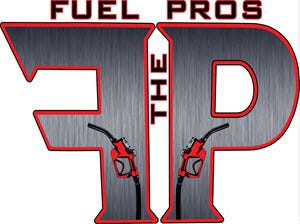
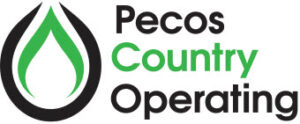
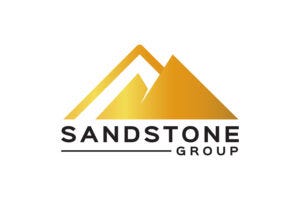
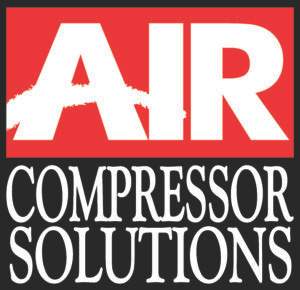
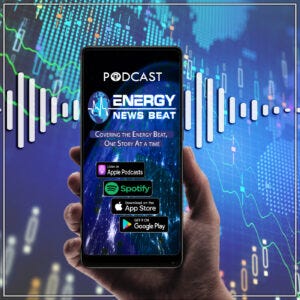
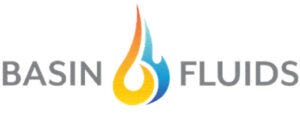
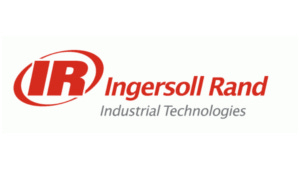
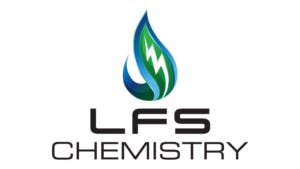
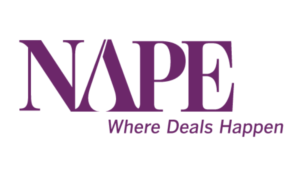

Sponsorships Are Available Or Get Your Own Corporate Brand Produced By Sandstone Media.
David Blackmon LinkedIn
The Crude Truth with Rey Trevino
Rey Trevino LinkedIn
Energy Transition Weekly Conversation
David Blackmon LinkedIn
Irina Slav LinkedIn
Armando Cavanha LinkedIn
